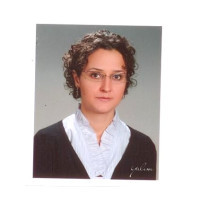Research Article
Aim & Scope
“Kaygı. Bursa Uludağ University Faculty of Arts and Sciences Journal of Philosophy” (in short, “Kaygı”) is an international peer-reviewed journal published biannually with the support of Uludağ University. It is prepared by the Department of Philosophy of Bursa Uludağ University with contributions by academics from other universities. Its e-ISSN number is 2645-8950. The aim of journal is to provide an academic discussion forum streaming toward the future in order to rethink the actual problems of the current age with a deepening on essential problems and solution proposals considered and deliberated intellectually from past to present within the field of philosophy via internalizing related historical background.
Kaygı promotes interdisciplinary cooperation and in this regard features studies in contemporary philosophy, history of philosophy, ethics, epistemology, ontology, philosophy of language, philosophy of science and related topics as well as cultural studies, aesthetics, cognitive sciences, and humanities & social sciences in the most comprehensive sense. Its aim is to establish a common platform for debate by remaining open to diverse philosophical and scientific approaches, movements, schools and styles.
Author Guidelines
2. TYPES of ACCEPTED WORKS
- Demir, Ö. (2000). Bilim Felsefesi (2. Basım). Ankara: Vadi Yayınları.
- West, D. (1998). Kıta Avrupası Felsefesine Giriş (çev. A. Cevizci). İstanbul: Paradigma Yayınları.
- Carnap, R. (1995). The Unity of Science (trans. by M. Black). Bristol: Thoemmes Press.
- Kabaağaç, S. ve Alova, E. (1999). Latince-Türkçe Sözlük. İstanbul: Sosyal Yayınları.
- Mallory, J. P. & Adams, D. Q. (2006). The Oxford Introduction to Proto-Indo-European and the Proto-Indo-European World. Oxford: Oxford University Press.
- Gökdoğan, M. D., Topdemir, H. G., Unat, Y. ve Demir, R. (2002). Bilim Tarihi Kılavuzu: Buluşlar ve Yapıtlar. Ankara: Nobel Yayınevi.
- Kirk, G. S., Raven, J. E. & Schofield, M. (1983). The Presocratic Philosophers. A Critical History with a Selection of Texts. Cambridge: Cambridge University Press.
- Türk Dil Kurumu (2005). Türkçe Sözlük. Ankara: Türk Dil Kurumu Yayınları.
- Kuçuradi, I. (1999). Değer, Değerler ve Yazın. Sanata Felsefeyle Bakmak (ss. 92-113). Ankara: Ayraç Yayınevi.
- Carnap, R. (2013). Metafiziğin Dilin Mantıksal Analiziyle Aşılması (çev. Z. Özcan). Viyana Çevresi Üzerine: Felsefede Son Büyük Dönemeç (derl. Zeki Özcan, ss. 123-152). Ankara: Birleşik Yayınevi.
- Carnap, R. (1966). The Old and the New Logic (trans. by I. Levi). Logical Positivism (ed. A. J. Ayer, pp. 113-146). New York: The Free Press.
- Akkaş, S. Ö. (2004). Francis Bacon. Felsefe Ansiklopedisi – Cilt 2 (ed. Ahmet Cevizci, ss. 8-17). İstanbul: Etik Yayınları.
- Alkan, N. (2014). Osmanlı'da Modernleşme, Modern Siyasal Düşünceler ve Türk Milliyetçiliği. Uluslararası Katılımlı Osmanlı Bilim ve Düşünce Tarihi Sempozyumu Bildiriler Kitabı (ed. M. F. Gökçek, ss. 712-722). Ankara: Gümüşhane Üniversitesi Yayınları.
- Aygün, Ö. (2021). Yaygın Zenon Okumasının Bir Eleştirisi. Kaygı. Bursa Uludağ Üniversitesi Fen-Edebiyat Fakültesi Felsefe Dergisi, 20 (1), 1-24. DOI: 10.20981/kaygi.884375.
- Friedman, M. (2002). Kant, Kuhn, and the Rationality of Science. Philosophy of Science, 69 (2), 171-190.
- Carnap, R. (1987). On Protocol Sentences (trans. R. Creath & R. Nollan). Nous, 21 (4), 457-470.
- Iltar, E ve Akçoru, R. (2021). Dinin Bilimsel Çalışmalara Etkisi: Ortaçağ astronomisi (VI. YY – XIII. YY) Örneği. Kaygı. Bursa Uludağ Üniversitesi Fen-Edebiyat Fakültesi Felsefe Dergisi, 20 (1), 239-263. DOI: 10.20981/kaygi.889670.
- Kovanlıkaya, A. (2002). A Critical Approach to Kant’s Conception of Experience in View of Leibniz’s Ontology [Yayımlanmamış Doktora Tezi]. Boğaziçi Üniversitesi Sosyal Bilimler Enstitüsü, İstanbul.
- NİSAN, Fatma (2014). “Entelektüel Sorumluluğu Vicdanda Taşımak", Accessed on 04.02.2014, (http://haber.gumushane.edu.tr/90/yazarlar/entelektuel-sorumlulugu-vicdanda-tasimak-.html).
Ethical Principles and Publication Policy
Price Policy
Yayın İlkeleri ve benzeri kısımlara bakınız.
Indexes
Journal Boards
Owner on the Behalf of Bursa Uludağ University

Prof. Dr. A. Kadir ÇÜÇEN, 1961 yılında Erzurum'da doğdu. İlk, orta ve lise tahsilini İzmit'te tamamladı. 1985 yılında Ankara Üniversitesi, Dil ve Tarih-Coğrafya Fakültesi'nin Felsefe Bölümü'nü bitirdikten sonra Yüksek Lisans ve Doktora çalışmalarını Amerika Birleşik Devletleri'nde tamamladı. Doktora çalışmasını Alman felsefeci Martin Heidegger'in varlık kuramı üzerinde yaptı. 1993 yılında Türkiye’ye döndü. 1995'de Yardımcı Doçent ve 1997'de Doçent ve 2003’de Profesör oldu. Prof. Dr. A. Kadir ÇÜÇEN’in Mantık, Heidegger'de Varlık ve Zaman, Felsefeye Giriş, Orta Çağ Felsefesi Tarihi, Bilgi Felsefesi, Klasik Mantık, Liseler İçin Felsefe Ders Kitabı ve Liseler İçin Mantık Ders Kitabı adlı kitapları vardır. Yurt içinde çok sayıda sunduğu bildiri ve yazdığı makalelerinin yanı sıra Rusya ve ABD’inde Heidegger üzerine iki bildirisi; Rusya, Fransa ve ABD’inde yayınlanmış birer makalesi bulunmaktadır. 1999 yaz dönemi TÜBA burslusu olarak ABD’nin Duquesne Üniversitesi'nde teknoloji felsefesi üzerine araştırma yaptı. Halen Uludağ Üniversitesi, Fen-Edebiyat Fakültesi, Felsefe Bölümü'nde öğretim üyesi olarak çalışmaktadır. Evli ve bir çocuk baba¬sıdır.
Editor-in-Chief

Editors



English Language Editor
Türkçe, İngilizce
Section Editors
Sinan Tankut Gülhan graduated from the METU Department of Sociology with High Honors in 2003, after which he received his Master's degree in 2006 and his PhD in 2014 from the Department of Sociology at SUNY-Binghamton. He has taught at SUNY-Binghamton and SUNY-Oneonta in the USA, and at Sabancı, Arel, FMV Işık, Uludağ, Yıldırım Beyazıt, and Gaziantep universities in Turkey. He obtained his Associate Professorship in the subfield of urban sociology in 2020. Since 2023, he has been pursuing his academic career at the University of Zielona Góra in Poland.
Gülhan's primary research areas are urban sociology, urbanization processes, and critical urban theory. Adopting an interdisciplinary approach in these fields, he also conducts research on the effects of digitalization on urban life. In addition to his articles published in reputable international and national journals, he is the author of a book titled "The Rise and Fall of the New Urban Sociology."


Libera Pisano is currently an Assistant Researcher at Nova University of Lisbon, supported by the FCT Stimulus of Scientific Employment (Individual Support). She earned her PhD in Theoretical Philosophy from La Sapienza (Rome) in 2014 with a dissertation titled Lo spirito manifesto. Percorsi linguistici nella filosofia hegeliana (ETS, 2016). She has been Marie Sklodowska-Curie Fellow at University Pompeu Fabra in Barcelona, Research Associate at University of Hamburg, and Research Fellow at the Maimonides Centre for Advanced Studies, at the University of Calabria and at the Humboldt University of Berlin. Her research explores the practical-political role of language, the interplay between exile and identity, and the political-theological dimensions of community in modern German and German-Jewish philosophy. Her forthcoming book, The Exile of Language: German-Jewish Philosophical Challenges to Linguistic Autochthony, will be published by Brill.
Editorial Board (Members)


Libera Pisano is currently an Assistant Researcher at Nova University of Lisbon, supported by the FCT Stimulus of Scientific Employment (Individual Support). She earned her PhD in Theoretical Philosophy from La Sapienza (Rome) in 2014 with a dissertation titled Lo spirito manifesto. Percorsi linguistici nella filosofia hegeliana (ETS, 2016). She has been Marie Sklodowska-Curie Fellow at University Pompeu Fabra in Barcelona, Research Associate at University of Hamburg, and Research Fellow at the Maimonides Centre for Advanced Studies, at the University of Calabria and at the Humboldt University of Berlin. Her research explores the practical-political role of language, the interplay between exile and identity, and the political-theological dimensions of community in modern German and German-Jewish philosophy. Her forthcoming book, The Exile of Language: German-Jewish Philosophical Challenges to Linguistic Autochthony, will be published by Brill.


e-ISSN: 2645-8950







